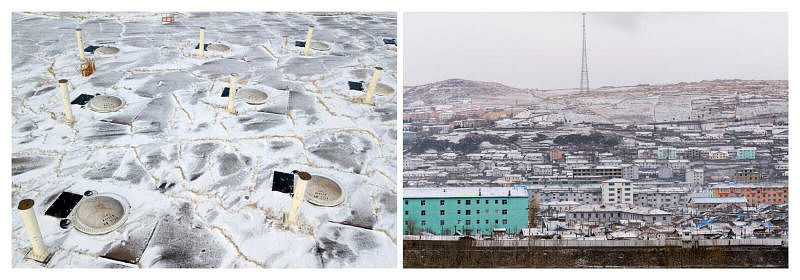First Singaporean Nobel Peace Prize photographer Sim Chi Yin creates nuclear exhibition
Sign up now: Get ST's newsletters delivered to your inbox
SINGAPORE - A sudden phone call in September set documentary photographer Sim Chi Yin on a whirlwind two-month journey from the China-North Korea border to six states in the Western United States.
Her mission: to create a series of photographs that reflect on mankind's experience with nuclear weapons.
Ms Sim, who was commissioned to showcase this year's Nobel Peace Prize winner - the International Campaign to Abolish Nuclear Weapons - is the first Singaporean Peace Prize photographer in the exhibition's 13-year history, the Nobel Peace Center's executive director Liv Torres told The Straits Times.
The result of her work is titled Fallout, which comprises a series of 36 photographs and a short video installation. They are part of a year long exhibition called "Ban the Bomb" that will open to the public on Dec 12 at the center in Oslo, Norway.
Speaking to The Straits Times from Oslo on Saturday (Dec 9), Ms Sim, 39, said that she agreed to the "once in a lifetime commission" even before knowing who her subject would be.
When the nuclear disarmament group was awarded the Peace Prize on Oct 6, Ms Sim, a Beijing-based former Straits Times correspondent, swung into research mode.
"It was a bit overwhelming because of how big the topic is...but I dug into my training as a history student; I'd done a lot of Cold War history," she said.
She settled on the idea of a series of diptychs, or paired pictures, juxtaposing the landscapes of North Korea - the only country to test nuclear weapons in the 21st Century - with that of the United States - the only country to have used them.

"These two countries are also in present times at tension with each other...it's a timely issue," said Ms Sim, whose work has been shown in museums, galleries and photo festivals globally, including a show at the Istanbul Biennial this year.
"There are surprisingly a lot of visual and historical parallels, and from the beginning I wanted to anonymise the places, so you don't know where you're looking at in the pictures," she added.
Over the last two months, she travelled along the North Korean border near missile testing facilities, and decommissioned missile silos in US states like Washington, Arizona and Nevada.
"I got to go into missile silos that were actually used during the Cold War... underground control rooms with walls metres and metres thick. The whole project was extremely fascinating and sobering," she said.
Ms Torres said that the centre had wanted to choose a photographer from Asia for the first time this year.
"When the prize was announced in October, it became obvious that Sim Chi Yin was the right choice. Her background as historian and correspondent in Asia, together with her strong visual expression, made her the perfect artist for this year's exhibition," she said.
Previous Peace Prize photographers include award-winning Danish documentary photographer Mads Nissen and Dutch photographer and director Anton Corbijn.
Correction note: The story has been edited for clarity.


